Next Generation Antivirus
It makes sense to intercept viruses and hacking at the perimeter of your internal network, at the Gateway (a.k.a. Firewall), before they reach your computers. The firewall gateway separates your internal network from the Internet, protecting all of its computers, shared printers and network storage, from the various Internet hazards and it may also protect against hazards that could originate inside your network. Rather than relying on antivirus software on the individual computers, it makes sense to detect and block malware and hacking attempts by filtering the IP traffic right at the Gateway, before users and networked computers can be affected.
 The Firewall’s Antivirus Software or an optional Software Blade uses about 5 million real-time virus signatures and anomaly-based protections from its collaborative database to fight cybercrime, with over 300,000 malicious websites flagged and about 250 million IP addresses analyzed for bot activity.
The Firewall’s Antivirus Software or an optional Software Blade uses about 5 million real-time virus signatures and anomaly-based protections from its collaborative database to fight cybercrime, with over 300,000 malicious websites flagged and about 250 million IP addresses analyzed for bot activity.
Botnet Protection
At the time of this writing there are about 200,000 known botnet “families”. Botnet is a virus which turns the infected computers into obedient slaves, performing the nefarious tasks ordered by the botnet operator, a hacker who may be thousands of miles away. Whether it is using your email service to send out their spam mail, or it is stealing your proprietary and confidential data, or the botnet is using your computer (and thousands more) to launch a denial of service attack on a 3d party, you should consider eradicating this sort of infection, better still – preventing it from ever taking hold. A botnet software blade attempts to block botnet virus before it has entered your network, discovers and blocks the remote operators’ command-and-control signaling, and eradicates botnet malware if it was installed on your computers by someone from within your organization, whether inadvertently, unbeknownst to them, or maliciously.
The task of keeping track of botnet servers is not easy: Zeus Trojan, for example, is controlled by more than a dozen criminal gangs and includes more than 160 command-and-control servers. When one group is found and arrested, others still operate. In order to limit the damage and size of botnets, users should stick to some simple rules of safe behavior online. While most malware can be blocked by a firewall and getting the latest computer updates for all installed software, the number of vulnerabilities in the billions of lines of code in various software applications is inevitably high. Users should use the up-to-date antivirus software and never open an attachment or accept a file transfer from a suspicious source. Avoid downloading pirated software, books and movies, which often contain hidden malware, use strong passwords and avoid browsing suspicious sites of fringe causes and behaviors (such as pornogrpahy and piroted movies, for example).
Protection Agaiant Zero-Day Malware
 The intrusion detection/prevention systems (IDS/IPS) which rely on signature-based detection are ineffective against new or camouflaged attacks, which are mascarading as legitimate traffic and/or are blocking the antimalware programs. To deal with Zero-Day (brand new) Unknown Malware and Potential Malware, the Antivirus Software Blade can be configured to detect suspicious executables and determine if they are harmful, then quarantine or obliterate these harmful programs. The sand-box functionality is especially important vis-a-vis today's "weapon-grade" malware, which blocks antivirus and logging software, then destroys your computer. By actually executing these suspected files, but in a secured, “sandboxed environment”, the Antivirus Software Blade can determine if the executable is malicious by monitoring its activities such as attempting to change an operating system or registry files, attempting to block antivirus, or to change or access protected user files. If the executable file so tested engages in dangerous activities, it is deemed malicious, and the firewall blocks it from entering the network. Such analyses is completed within milliseconds, so it is transparent to the network users. Users can also test files' behavior before executing them.
The intrusion detection/prevention systems (IDS/IPS) which rely on signature-based detection are ineffective against new or camouflaged attacks, which are mascarading as legitimate traffic and/or are blocking the antimalware programs. To deal with Zero-Day (brand new) Unknown Malware and Potential Malware, the Antivirus Software Blade can be configured to detect suspicious executables and determine if they are harmful, then quarantine or obliterate these harmful programs. The sand-box functionality is especially important vis-a-vis today's "weapon-grade" malware, which blocks antivirus and logging software, then destroys your computer. By actually executing these suspected files, but in a secured, “sandboxed environment”, the Antivirus Software Blade can determine if the executable is malicious by monitoring its activities such as attempting to change an operating system or registry files, attempting to block antivirus, or to change or access protected user files. If the executable file so tested engages in dangerous activities, it is deemed malicious, and the firewall blocks it from entering the network. Such analyses is completed within milliseconds, so it is transparent to the network users. Users can also test files' behavior before executing them.
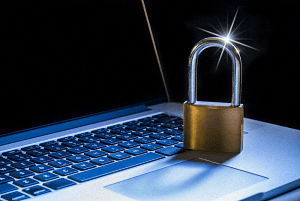
Protection of Individual Computers
Latest antivirus software should also be installed on individual computers to protect them from hazards coming from the internal “sneakernet”, as well as the Internet. . Oftentimes, loss of data is not the work of outside hackers but an inside job, where a willful vandal with privileged access overrides all software protections. If all else fails, including backup recovery, chances are good that we, at PcLabs, can still help you to recover even from the weapons-grade virus or an insider's vandal attack. Yet, an ounce of prevention is worth a pound of cure .
Why Should You Deal with Cybersecurity?
Cyber security refers generally to the owner's ability to exercise finely tuned control over access to networked systems and the information they contain, the owner's ability to prevent unauthorized access, prevent damage to or theft of their data. Where cyber security controls are effective, cyberspace is .a reliable, resilient, and trustworthy digital infrastructure, and a powerful lever of productivity. Where cyber security controls are absent, incomplete, or poorly implemented, cyberspace turns into the Wild West of the digital age, the stage on which international hackers show off their prowess, and sophisticated viruses enslave your computers, take your information hostage, steal your identity or destroy your data.
The goal of good cybersecurity practices is to make all attempts at hacking your computers and devices fruitless: While there is no such thing as "100% secure", good cybersecurity effectively discourages and turns away all but the most persistent, sophisticated and dogged hackers... still defeated, despite massive efforts they would have to exert. Today's cyber hacking attacks usually begin with attempts to imbed viruses, seeking to pry open and turn your infrastructure components into obedient slaves to a hacker, while attempting to disable, block or deceive cybersecurity. Today's cybersecurity works transparently to the network users, preventing the combined malware and hacking attacks before they can strike their targets.
Cyber Hacking is Massive, Automated, and of Epic Magnitude
The daily summaries of hacks are filled with names of companies, big and small: AT&T, Verizon, Yahoo, Ebay, Sony, HBO… even US Air Force and NATO sites, among others. Typically, the attack against the US Air Force was eventually traced to two young hackers—Kuji (age 21) and Datastream Cowboy (16-years of age English schoolboy) — who originated their hacking attacks in the United Kingdom but were faking entering the Internet from various points of access across the globe to hack into many Air Force and NATO internal networks.
These kids were caught, but most hackers are not. The list of companies and organizations hit by massive hacking and/or viruses is very long and quickly growing. And the massive losses of confidential data, such as credit card and social security numbers, or the epic ransomware virus attacks destroying data on tens of thousands of computers could have been prevented by properly deployed off-the-shelf security appliances defeating all manner of attack.
At the time of this writing, In August 2017, HBO was hacked, a hacker stealing terabytes of brand-spanking-new popular show "The Games of Thrones" just scheduled to be released, as well as the company's internal e-mails. The hacker, who self-dentified as “Mr. Smith”, demanded a $6 million ransom, his average salary for the 6 months it allegedly took him to cultivate and develop the hack. “Mr Smith” claimed he’s “earned” $50 mill in ransom thus far, released some of the content of the “Game of Thrones” and threatened to release internal communications and more content.
https://www.usatoday.com/story/life/tv/2017/08/02/hbo-hack-game-thrones-scripts-unreleased-episodes-leaked/532081001/

With the stream of reports on these ever more spectacular hacks, effecting sometimes tens of millions of users, everyone who pays attention understands that cybersecurity is important... at least for big corporations. Yet, just about anyone with a computer, tablet or smart phone doing occasional online banking or shopping, or Internet browsing, texting or emailing, is in danger of identity theft, a big business that may ruin you life for quite a while. Unless you are protected, you are up against well-equipped, well-rewarded, highly skilled hacking organizations. Unfortunately, most people wait till it’s too late, instead of taking a few simple steps towards protecting their financial information and their future. Don't be one of them.
CyberSecurity Mythology Vs. Reality
 Companies holding consumers' confidential information do their best... to avoid negative publicity by concealing the breaches of security they suffer. Nevertheless, reports of these massive hacks and virus hits do leak into the media, and the media being what it is, some got sensationalized, straight into the relm of fiction and mythology.
Companies holding consumers' confidential information do their best... to avoid negative publicity by concealing the breaches of security they suffer. Nevertheless, reports of these massive hacks and virus hits do leak into the media, and the media being what it is, some got sensationalized, straight into the relm of fiction and mythology.
Compounded by the gullability of the general public when it comes to the arcane issues of Cybersecurity, the media has effectively whipped up a frenzy of cyber mythology, spreading Fear, Uncertainty and Doubt (FUD), especially in at least one case in which a "hack" was really an inside job. In this environment, unscrupulous people, including a few sales reps of cybersecurity vendors sold the public all kinds of nonsense, rewarding themselves with people's money for unnecessary and in some cases useless gear. Not to be outdone, politicians used "hacking" mythology to spread FUD in order to earn political capital. Meanwhile, there are scores of inexepensive and effective off-the-shelf cybersecurity appliances, which — when properly deployed — would effectively twart all manner of malware and hacking.
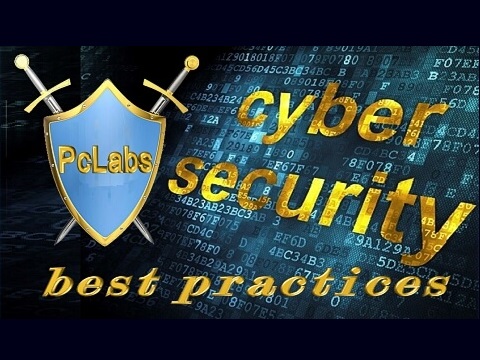
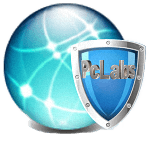
 Although these metrics are widely accepted, they are not very meaningful. The author of this article, a Ph.D. in IT with a long list of accomplishments in cybersecurity would do the calculations, and define meaningful metrics, and measure them for you (for a fee, of course), if that's what you want. But the point is that many small businesses, unless they operate in a highs security envoronment, do not really need "metrics".
Although these metrics are widely accepted, they are not very meaningful. The author of this article, a Ph.D. in IT with a long list of accomplishments in cybersecurity would do the calculations, and define meaningful metrics, and measure them for you (for a fee, of course), if that's what you want. But the point is that many small businesses, unless they operate in a highs security envoronment, do not really need "metrics". 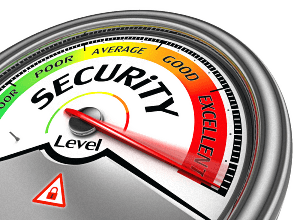 The metrics themselves are often poorly understood by business managers; they measure the aspects of security which IT practitioners understand differently from what their business users believe they represent. Because of the lack of industry-wide information on security practices and incidents, most of these metrics are based on rather unreliable data that must be supplemented with... the opinions of specialists.
The metrics themselves are often poorly understood by business managers; they measure the aspects of security which IT practitioners understand differently from what their business users believe they represent. Because of the lack of industry-wide information on security practices and incidents, most of these metrics are based on rather unreliable data that must be supplemented with... the opinions of specialists. 
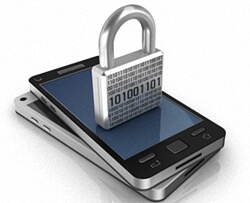 Do you need absolute privacy communicating with clients? Did you hear about an expensive legal team in a multi-million dollar lawsuit, "accidentally" sending their strategy email to the Politico correspondent and the opposing counsel, in addition to their client? Lawyers and doctors are not the only ones obliged to protect the privacy of their communications with clients.
Do you need absolute privacy communicating with clients? Did you hear about an expensive legal team in a multi-million dollar lawsuit, "accidentally" sending their strategy email to the Politico correspondent and the opposing counsel, in addition to their client? Lawyers and doctors are not the only ones obliged to protect the privacy of their communications with clients. – PcLabs elegant End-to-End encryption solutions are transparent to you and your business partners, but protect your proprietary information from the prying eyes of competitors and adversaries. Indulge your clients with self-decrypting and self-destructing e-mails or files, and use files and folders invisible and off limits to anyone else but you.
– PcLabs elegant End-to-End encryption solutions are transparent to you and your business partners, but protect your proprietary information from the prying eyes of competitors and adversaries. Indulge your clients with self-decrypting and self-destructing e-mails or files, and use files and folders invisible and off limits to anyone else but you.